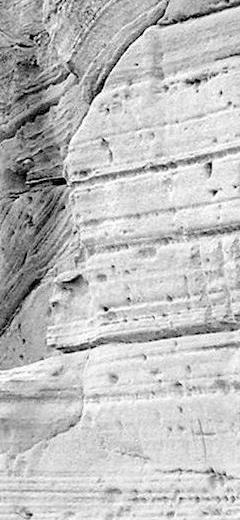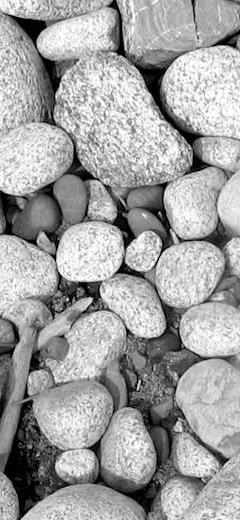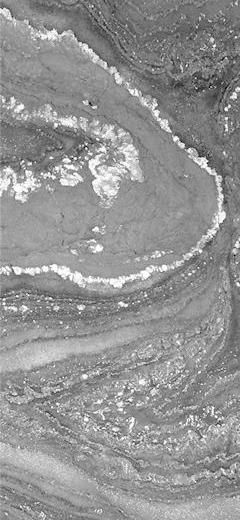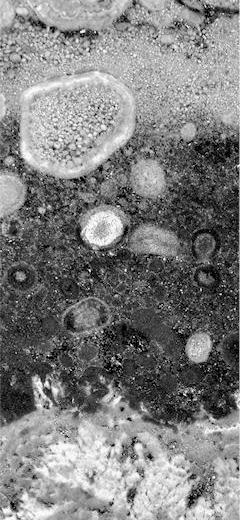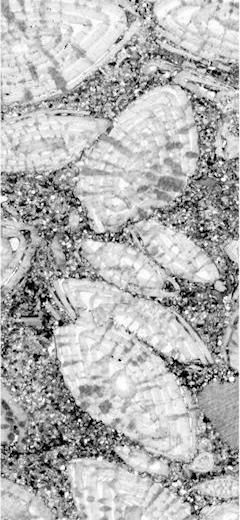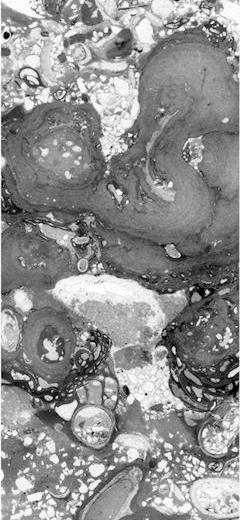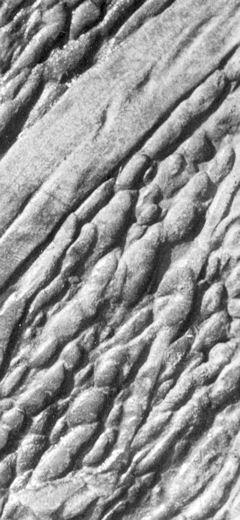ASGP (1999), vol. 69: 195-217
LATE OLIGOCENE FORAMINIFERA FROM THE KROSNO BEDS IN THE SAN VALLEY SECTION (BIESZCZADY MOUNTAINS); SILESIAN UNIT, POLISH OUTER CARPATHIANS
Krzysztof BĄK
Institute of Geography, Cracow Pedagogical University, Podchorazych 2, 30-084 Cracow, Poland; E-mail: sgbak at cyf-kr.edu.pl
Bąk, K., 1999. Late Oligocene Foraminifera from the Krosno Beds in the San valley section (Bieszczady Mountains); Silesian Unit, Polish Outer Carpathians. Ann. Soc. Geol. Polon., 69: 195-217.
Abstract: Foraminifera in the upper division of the Krosno Beds in the San river outcrops in the Bieszczady Mts. (Silesian Unit; Dzwiniacz Górny Syncline) indicate that deposits above the Zagórz Limestone chronohorizon represent a continuous section of early Egerian age. The succession of planktic foraminifers, dominated by small tenuitellids, shows that some species (Tenuitella liverovskae, T. munda and Tenuitellinata angustiumbilicata) have longer stratigraphic ranges in the studied deposits than accepted earlier for the Polish part of the Central Paratethys. The benthic foraminiferal assemblage consists mainly of cylindrical and conical forms of genera Praeglobobulimina, Fursenkoina, Chilostomella, Allomorphina and species Bulimina elongata, which are interpreted as an association adapted to oxygen-depleted waters. Some of the benthic forms are for the first time referred from the Oligocene of the Polish part of the Outer Carpathians. The paper contains description of most determined foraminifers.
Abstrakt: Otwornice z najmłodszej części górnego oddziału warstw krośnieńskich w profilu rzeki San w Bieszczadach (jednostka śląska, synklina Dźwiniacza Górnego) wskazują, że osady powyżej chronohoryzontu wapienia z Zagórza reprezentują dolny eger. Niektóre z otwornic planktonicznych w tym profilu, wśród których dominują tenuitelle o małych rozmiarach, są młodsze niż to dotychczas opisywano z polskiej części Centralnej Paratetydy (Tenuitella liverovskae, T. munda, Tenuitellinata angustiumbilicata). Zespół otwornic bentonicznych tworzą cylindryczne i stożkowe formy z rodzajów: Praeglobobulimina, Fursenkoina, Chilostomella, Allomorphina oraz gatunek Bulimina elongata. Taki skład zespołu może być interpretowany jako asocjacja ze strefy minimum tlenowego. Niektóre gatunki otwornic bentonicznych zostały po raz pierwszy opisane z osadów oligocenu polskiej części Karpat Zewnętrznych. W artykule zawarto opis większości oznaczonych otwornic.

